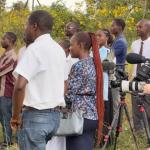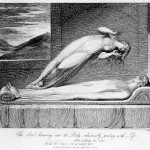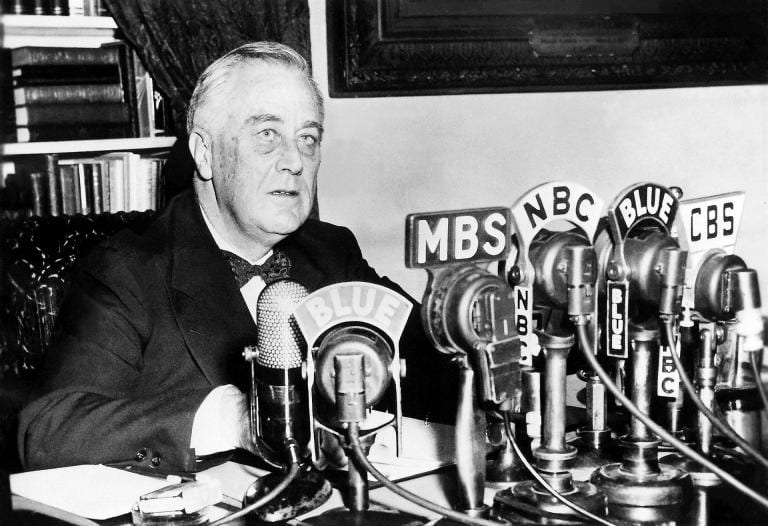
As I’ve said, I’m copying out some of the notes that I’ve been taking from my reading over the past while, and I think that some of you might find them of occasional interest. For this particular blog entry, my theme concerns whether or not mind is wholly reducible to brain.
I start with a quotation from the famous Cornell University astrophysicist and science popularizer Carl Sagan (1934-1996), who was a vocal atheist:
My fundamental premise about the brain is that its workings — what we sometimes call “mind” — are a consequence of its anatomy and physiology and nothing more. [Quoted in Harold J. Morowitz, “Rediscovering the Mind,” in Douglas R. Hofstadter and Daniel C. Dennett, The Mind’s I: Fantasies and Reflections on Self and Soul (New York: Basic Books, 2000), 35; from Carl Sagan, The Dragons of Eden (New York: Random House, 1977)]
And here is the philosopher Daniel Dennett (1941-), who is an even more outspoken atheist. In fact, he’s commonly reckoned (along with Sam Harris, Richard Dawkins, and the late Christopher Hitchens) among the “Four Horsemen” of the “New Atheists”:
A brain was always going to do what it was caused to do by local mechanical disturbances. [Daniel Dennett, in Samuel Guttenplan, ed., A Companion to the Philosophy of Mind (Oxford: Blackwell, 1994), 237]
Thomas W. Clark, the founder of the Center for Naturalism, agrees, declaring that
There is no kernel of independent moral agency. . . . We are not, as philosopher Daniel Dennett puts it, “moral levitators” that rise above circumstances in our choices, including choices to rob, rape, or kill. (Tom W. Clark, “Maximizing Liberty: Retribution, Responsibility, and the Mentor State,” Center for Naturalism, https://www.naturalism.org/applied-naturalism/politics/libertarianism/maximizing-liberty)
Reporting in 1996 on the materialistic consensus in neuroscience, the novelist and journalist Tom Wolfe (1930-2018), an atheist who also happened to hold a Ph.D. from Yale University, wrote of the human brain that
All we are looking at is a piece of machinery, an analog chemical computer, that processes information from the environment. . . . You can look and look and you will not find any ghostly self inside, or any mind, or any soul. . . . The soul, that last refuge of values, is dead, because educated people no longer believe it exists. [Tom Wolfe, “Sorry, but Your Soul Just Died,” https://www3.nd.edu/~afreddos/courses/43151/WolfeSoulDied.php.htm]
Not everybody shares that view, though. Writing while he was still at the Université de Montréal (he is now at the University of Arizona), the Canadian cognitive neuroscientist Mario Beauregard suggested that
Wolfe’s death announcement may have been a trifle premature, the worried reductionism a trifle greedy perhaps. Mind, consciousness, and self are not out of a job after all. In fact, as we shall now see via the placebo effect, mind, consciousness, and self play a key role in whether, how, and how soon we recover from illnesses. [Mario Beauregard and Denyse O’Leary, The Spiritual Brain: A Neuroscientist’s Case for the Existence of the Soul (New York: HarperOne, 2007), 139-140)
He has an ally in Jeffrey M. Schwartz, a psychiatrist based at the UCLA School of Medicine and a noted expert on the treatment of obsessive-compulsive disorders:
The time has come for science to confront the serious implications of the fact that directed, willed mental activity can clearly and systematically alter brain function. [Jeffrey M. Schwartz and Sharon Begley, The Mind and the Brain: Neuroplasticity and the Power of Mental Force (New York: HarperCollins, Regan Books, 2003), 54-55]
Says the heterodox psychologist Dean Radin,
Classical scientific assumptions simply do not account for how mind-body interactions, biofeedback, or the placebo effect works. [Dean Radin, The Conscious Universe: The Scientific Truth of Psychic Phenomena (San Francisco: HarperSanFrancisco, 1997), 258]
Another interesting voice is that of B. Alan Wallace, who holds a doctorate from Stanford in religious studies with an emphasis on Buddhism and its relevance to questions about consciousness:
Mainstream neuroscience . . . insists that individual consciousness vanishes with the death of the body. However, given its ignorance of the origins and nature of consciousness and its inability to detect the presence of absence of consciousness in any organism, living or dead, neuroscience does not seem to be in a position to back up that conviction with empirical scientific evidence. [B. Alan Wallace, The Taboo of Subjectivity: Toward a New Science of Consciousness (Oxford: Oxford University Press, 2000), 5]
Finally, I share a passage co-written by the Australian neurophysiologist Sir John Eccles (1903-1997), co-winner of the 1963 Nobel Prize in Physiology or Medicine, and the prominent neuropsychologist and philosopher Daniel N. Robinson (1937-2018). First, though, I’ll let the unorthodox biologist Rupert Sheldrake explain the term promissory materialism, which they borrowed from the eminent Anglo-Austrian philosopher of science Sir Karl Popper (1902-1994), with whom Sir John Eccles wrote a famous 1977 book entitled The Self and Its Brain: An Argument for Interactionism:
Materialists are sustained by the faith that science will redeem their promises, turning their beliefs into facts. Meanwhile, they live on credit. The philosopher of science Sir Karl Popper described this faith as “promissory materialism” because it depends on promissory notes for discoveries not yet made. [https://www.edge.org/response-detail/11002]
Here are Eccles and Robinson:
We regard promissory materialism as superstition without a rational foundation. The more we discover about the brain, the more clearly do we distinguish between the brain events and the mental phenomena, and the more wonderful do both the brain events and the mental phenomena become. Promissory materialism is simply a religious belief held by dogmatic materialists . . . who often confuse their religion with their science. [John Eccles and Daniel N. Robinson, The Wonder of Being Human: Our Brain and Our Mind (New York: Free Press, 1984), 36]
***
There are — amazingly! — new materials on the website of the Interpreter Foundation:
Once again, Jonn Claybaugh provides a concise but helpful set of notes for students and teachers of the Church’s “Come, Follow Me” curriculum.
“Interpreter Radio: The New Testament in Context Lesson 23”
In the 7 May 2023 Come, Follow Me segment of the Interpreter Radio Show, Terry Hutchinson, Spencer Kraus, Hales Swift, and Brent Schmidt discussed New Testament lesson 23, “In Remembrance” covering Matthew 26, Mark 14, and John 13. Having been edited to remove commercial breaks, their discussion is now archived and available to you at no charge and at your convenience. The other segments of the May 7 radio show can be accessed at https://interpreterfoundation.org/interpreter-radio-show-may-7-2023.
The Interpreter Radio Show can be heard Sunday evenings from 7 to 9 PM (MDT), on K-TALK, AM 1640, or you can listen live on the Internet at ktalkmedia.com.
***
I’m long overdue in mentioning it, but I was saddened to learn some time back of the too early death of the fine Evangelical Protestant biblical scholar Michael Heiser. I had lost touch with him in recent years but, at one time, we were in occasional contact both via email and in person.
Mike was a central figure in one of the best examples of civil and substantive interreligious exchange in which I’ve ever had the privilege to participate. It began with my publication of an article entitled “Ye Are Gods: Psalm 82 and John 10 as Witnesses to the Divine Nature of Humankind.”
Mike took exception to my argument and asked whether he might be permitted to respond to me in the pages of what was then called the Review of Books on the Book of Mormon, which I had founded for the Foundation for Ancient Research and Mormon Studies (FARMS) and which later became the ill-fated FARMS Review, of blessed memory. I responded that, yes, he could, provided that a Latter-day Saint reply could then follow what he would write. Two additional articles resulted from that back-and-forth:
- Michael S. Heiser, “You’ve Seen One Elohim, You’ve Seen Them All? A Critique of Mormonism’s Use of Psalm 82,” Review of Books on the Book of Mormon 19/1 (2007): 221-266
- David E. Bokovoy, “Ye Really Are Gods’: A Response to Michael Heiser concerning the LDS Use of Psalm 82 and the Gospel of John,” Review of Books on the Book of Mormon 19/1 (2007): 267-313.
Models of mutually respectful religious or political discourse are depressingly rare these days. But this is one.
***
I’ve been eagerly awaiting this book for at least fifteen years: “Authors of new book about Mountain Meadows Massacre say the tragedy has insights for current polarized moment.” And if (for some bizarre reason) you seek an example of polarization and of discourse that is religiously and politically disrespectful, you need look no further than the comments following the article itself. (I don’t recommend looking, mind you; what you will see is terribly depressing.)
***
And, oh yes, by the way: I’ve received inquiries as to why Jeff Bradshaw is wearing a missionary name tag in the photos that I’ve recently posted of our Interpreter film crew, who are working at the moment in the Democratic Republic of the Congo. I assume that the name tag is connected with what is mentioned in the final sentence of Jeff’s Interpreter Foundation bio, to which I provided a link in yesterday’s blog entry:
As a church service missionary for the Church History Department, Jeff is writing histories of the temples in Kinshasa, Lubumbashi, and Kananga, and for Interpreter he is working with RedBrick Filmworks to document the history of the Church in the DR Congo on film.













